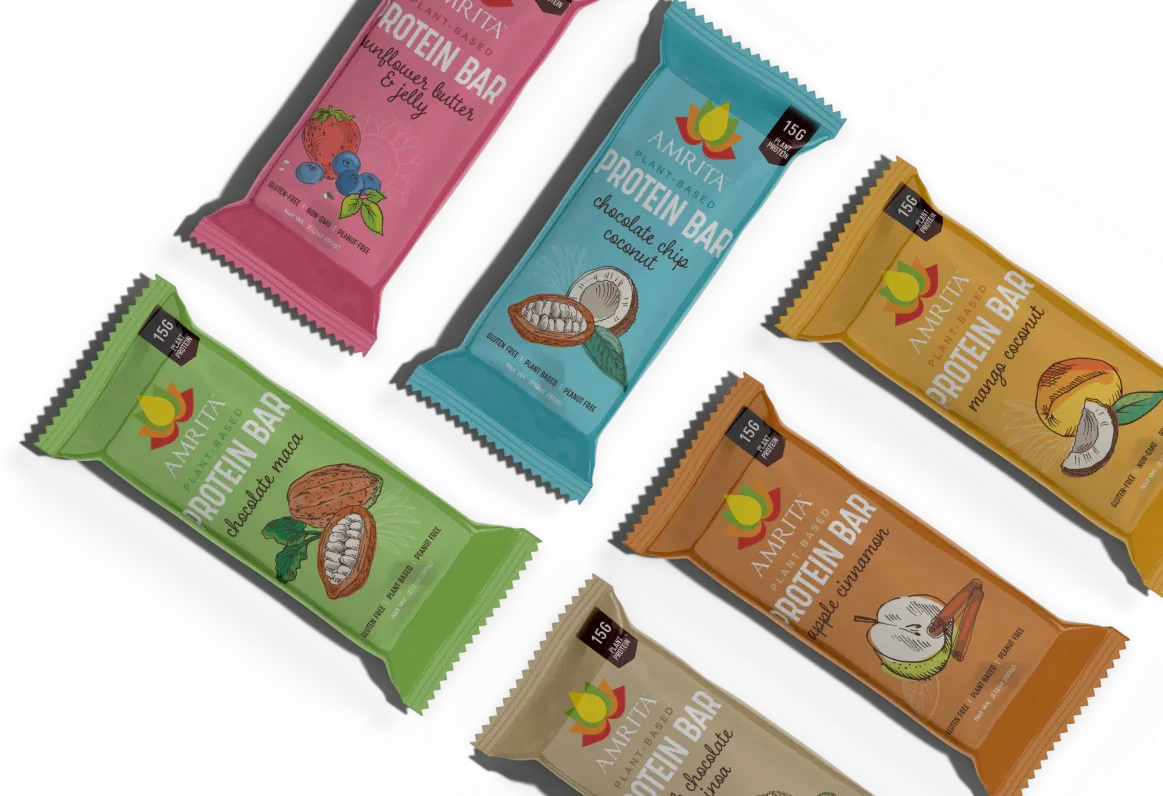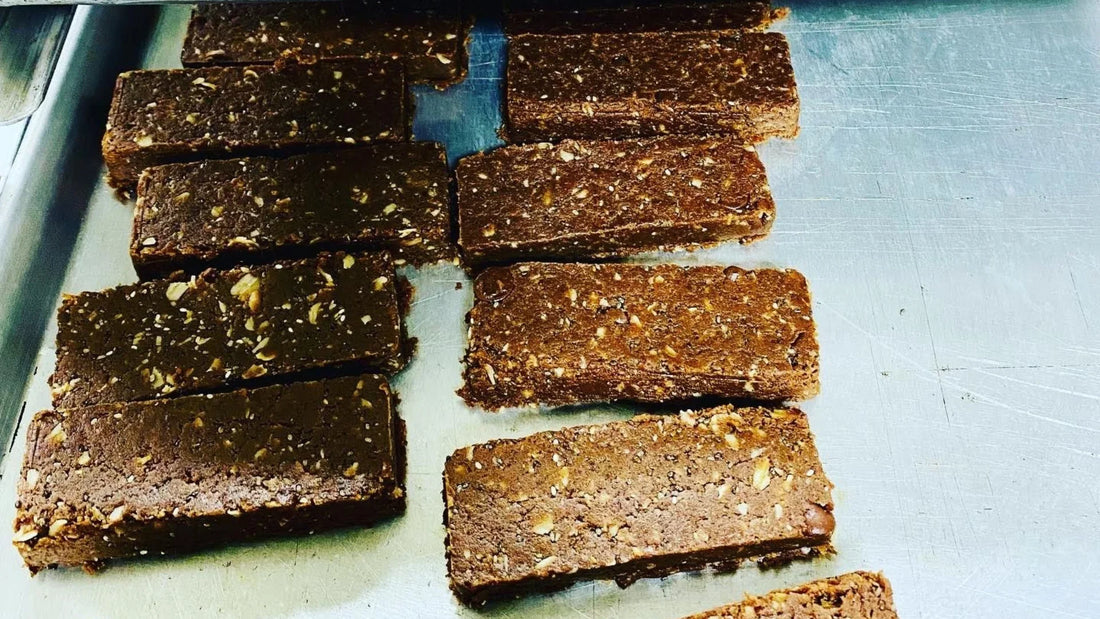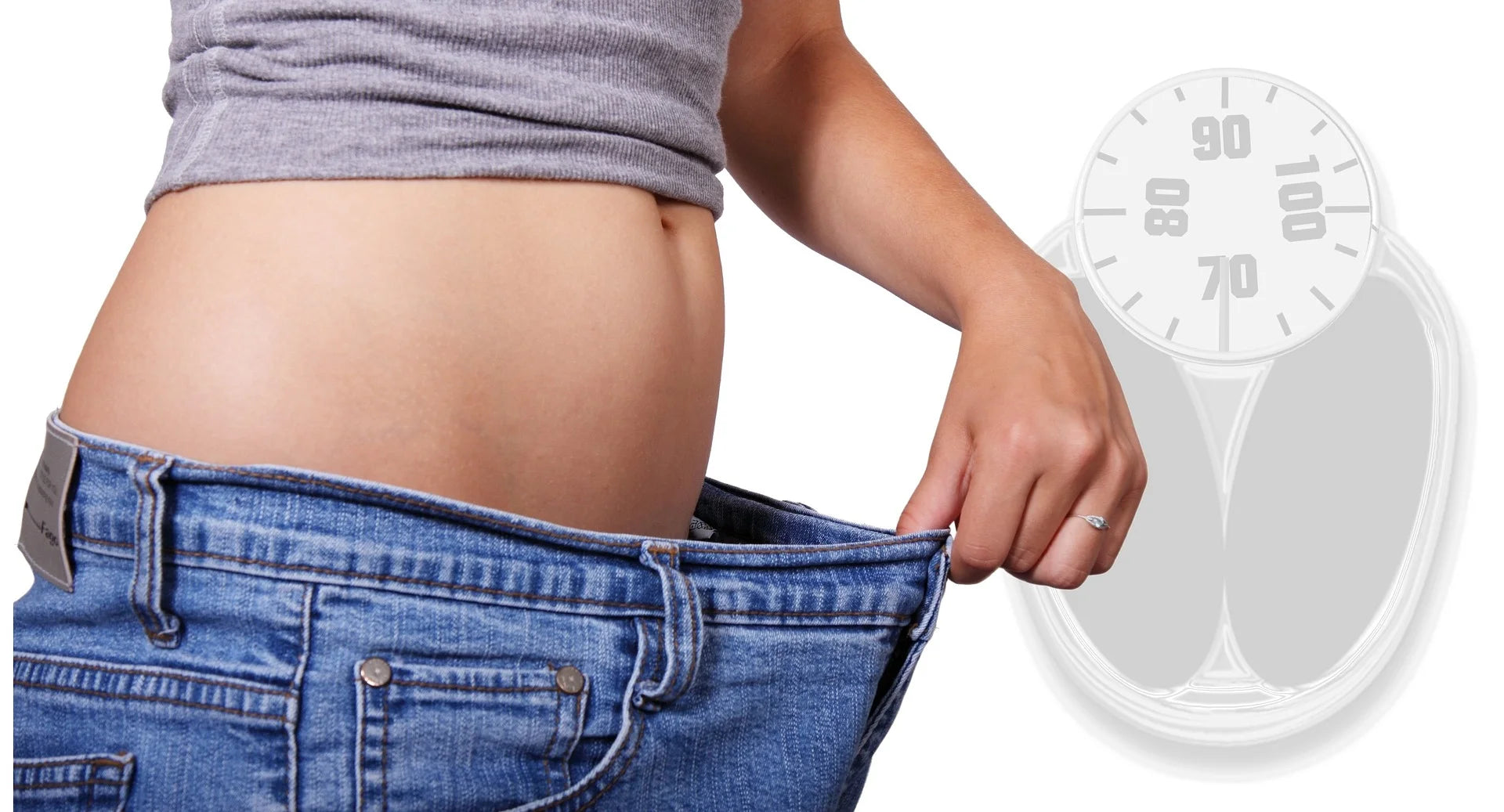Protein bars are a popular and healthy snack that's quick and easy to consume and is a great way to get your daily protein intake.
However, there are certain concerns when it comes to their impact of weight and fat gain.
Are protein bars really making you fat? In this article, we've covered everything you need to know about how protein bars impact weight.
What Are Protein Bars?
Protein bars are convenient and easily consumable snack options that offer a high amount of protein . They have multiple different protein sources, including whey, casein, soy, or plant-based proteins like pea protein. Along with protein, protein bars usually contain carbohydrates, fats, vitamins, minerals, and other essential nutrients.
They're especially useful when you're craving something tasty and dinner isn't finished cooking yet.
The usual misconception around protein bars is that they can be used as a meal replacement, which isn't true. While protein bars contain plenty of nutritional value, they're not enough to fulfill all the essential vitamins, minerals, fats, and carbohydrates a healthy meal gives. This means you should use them as a snack and not a source of nutrition.
If you use protein bars regularly, it's important to choose a protein bar brand that uses whole grains, natural sweeteners, and healthy ingredients that won't compromise your health.
Do Protein Bars Make You Gain Weight?
Whether protein bars make you gain weight is a common concern for many enjoyers.
The main factor to consider is the caloric content of protein bars. While protein bars are usually healthy, they're also high in calories. This means that eating high-calorie protein bars can lead to weight gain if you don't properly include them in your diet.
If you eat a balanced diet and leave room for snacks, protein bars won't make you gain weight, even though they are considered high-calorie food.
In addition to calorie content, some protein bars may have added sugars or artificial sweeteners. These ingredients mean extra calories and will also affect blood sugar levels. Make sure to read the nutritional label on your protein bar and choose bars with low sugar content.
Some protein bars may also contain sugar alcohols, which reduce the sugar and calorie content, but cause a laxative effect or digestive discomfort for some individuals with poor gut health.
Is It Okay To Eat Protein Bars Everyday?
Eating protein bars daily is okay as long as they are consumed as part of a balanced diet and in moderation.
It's important to keep in mind that protein bars aren't a primary source of protein and shouldn't be used as meal replacement.
Protein bars are a quick and easy way to supplement your protein intake, especially if you're having a hard time meeting your daily protein intake requirements. There are plenty of vegan protein bar options out there if you're struggling to find plant-based protein sources.
It is generally recommended to consume 1-2 protein bars a day, in between meals or around workout times for optimal muscle-building benefits.
Which Protein Bar is Best For Weight Loss?
For weight loss, you would usually look for options lower in calories and sugars, and higher in protein and fiber to promote satiety.
Here are the 3 best protein bar brands for weight loss :
Amrita Health Foods bars have the highest protein (15g) and fiber (7g) content, which could be beneficial for weight loss as they can help keep you full for longer.
RXBAR has the lowest calories (210) but also a slightly lower protein (12g) and fiber content (5g) compared to Amrita, making it a slightly inferior option.
Clif Bar has more added sugars (16g), which might be less ideal for weight loss.
| Brand | Calories | Dietary Fiber | Protein | Total Sugar |
| Clif Bar | 250 | 5g | 10g | 17g |
| RXBAR | 210 | 5g | 12g | 13g |
| Amrita Health Foods | 240 | 7g | 15g | 9g |
It's also important to consider the type of protein bars you're looking for:
Amrita Health Foods uses natural ingredients only in their protein bars and is completely plant-based, gluten-free, dairy-free, nut-free, and free from 14 common allergens.
RXBAR is known for using whole food ingredients but is not vegan due to egg whites. They also contain almonds and cashews, common tree nut allergens.
Clif Bar contains organic ingredients but is not vegan or free from most allergies, including sesame, wheat, and milk.
Overall, the best protein bar for weight loss is a subjective choice that each individual can make on their own.

What To Look For In Weight-Loss Protein Bars?
Calories Per Serving
When it comes to weight loss, calories are the most important factor of your diet. When you're choosing a protein bar for weight loss, take a look at the amount of calories the bar has.
The usual amount of calories a protein bar should have is 150-250 calories per serving . Anything that exceeds that limit by a noticeable amount is not a good choice if your goal is to lose weight.
Make sure you're tracking your calorie intake and balancing your protein bar intake accordingly with your diet.
Protein Content
You're buying the protein bars for a reason, to get protein. Hence the name "protein bars".
Protein is crucial for muscle repair and growth, and it promotes satiety and a healthy metabolism.
A higher dose of protein per bar means better muscle repair and less hunger. The typical amount you should aim for is 10-20 grams per serving , preferably plant-based protein for optimal health benefits.
Total Carbohydrates and Sugar Content
Carbs and sugar are also important factors for weight loss. When choosing a protein bar, you should aim for bars with lower carbohydrate content and minimal amounts of added sugars.
This way, you avoid consuming excessive amounts of carbohydrates, which leads to weight gain. The typical amount is 15-25g of carbohydrates per serving.
Added sugars are usually here to improve the bar's taste, but they also add unnecessary calories. You should aim for bars with 10g or less of added sugar per serving.
Fiber
Fiber is an important ingredient in protein bars. It contributes to a feeling of satiety, regulates blood sugar levels, and supports digestive health.
An ideal protein bar should have around 3-5g or more of fiber per serving to keep you full for a longer time.
Fiber is found in whole foods such as fruits, vegetables, and whole grains. Including fiber-rich foods in your diet has been linked to a reduced risk of heart disease, type 2 diabetes, and obesity.
How Protein Bars Affect Your Weight
Protein bars can impact weight in many ways depending on the diet you're following.
If you're on a weight-loss diet, consuming enough protein and working out will help you keep your muscles and lose only unnecessary fat.
If you're trying to gain weight, eating enough protein will make sure you gain muscles and strength instead of fat.
Benefits
Protein bars are a great way to supplement protein, making them ideal for muscle repair and growth.
In addition to that, they're also useful for controlling appetite and managing weight, as well as improving overall health and wellness .
If you choose a truly healthy protein bar , the healthy fats and nutrients will have a positive impact on your health.
Disadvantages
Some protein bars may contain high levels of added sugar, artificial sweeteners, and preservatives.
These have a negative impact on your health and contribute to unhealthy weight gain .
In addition to that, some protein bars are highly processed and lack essential nutrients found in whole foods.
That's why choosing a good protein bar is the most important step in your journey.
How Many Protein Bars Per Day?
It is generally recommended to consume 1-2 protein bars a day for optimal health benefits. Eating too many protein bars can strain the kidneys and liver, leading to long-term health issues . If the protein bars contain added sugars or artificial sweeteners, those ingredients can disrupt the blood sugar levels and increase sugar cravings.
When Should You Eat Protein Bars?
Is It Okay To Eat Protein Bars Before Bed?
Yes, protein bars before bed can supply your body with amino acids throughout the night, which means they are beneficial for muscle repair and growth during sleep.
However, it's important to choose bars that are low in sugar, to avoid a spike before bed.
Conclusion
Protein bars are a great on-the-go snack that can be used both for weight gain and weight loss, as long as they're used with a balanced diet.
When choosing a protein bar, carefully read the ingredients and the nutritional label of the bar, to ensure you're getting the most out of your bars.
Remember to not use them as meal replacements but as a healthy and filling snack.
Frequently Asked Questions
Can Protein Bars Make You Lose Fat?
Protein bars can aid in weight loss as they are convenient, high in protein, and can help control cravings. However, it's essential to choose bars with low sugar and carb content. Moderation is key and consuming them as part of a balanced diet may support fat loss.
Why Are Protein Bars So High In Calories?
Protein bars are high in calories due to their ingredients like protein, healthy fats, and carbohydrates. These bars are designed to provide a quick source of energy and nutrition, making them a convenient option for athletes and people on the go.
Can You Take Protein Bars on an Empty Stomach?
Yes, you can take protein bars on an empty stomach. Since they are easily digestible, they can provide a quick source of energy. However, some people might find it heavy and prefer to eat something lighter. It ultimately depends on individual preferences and digestive systems.


